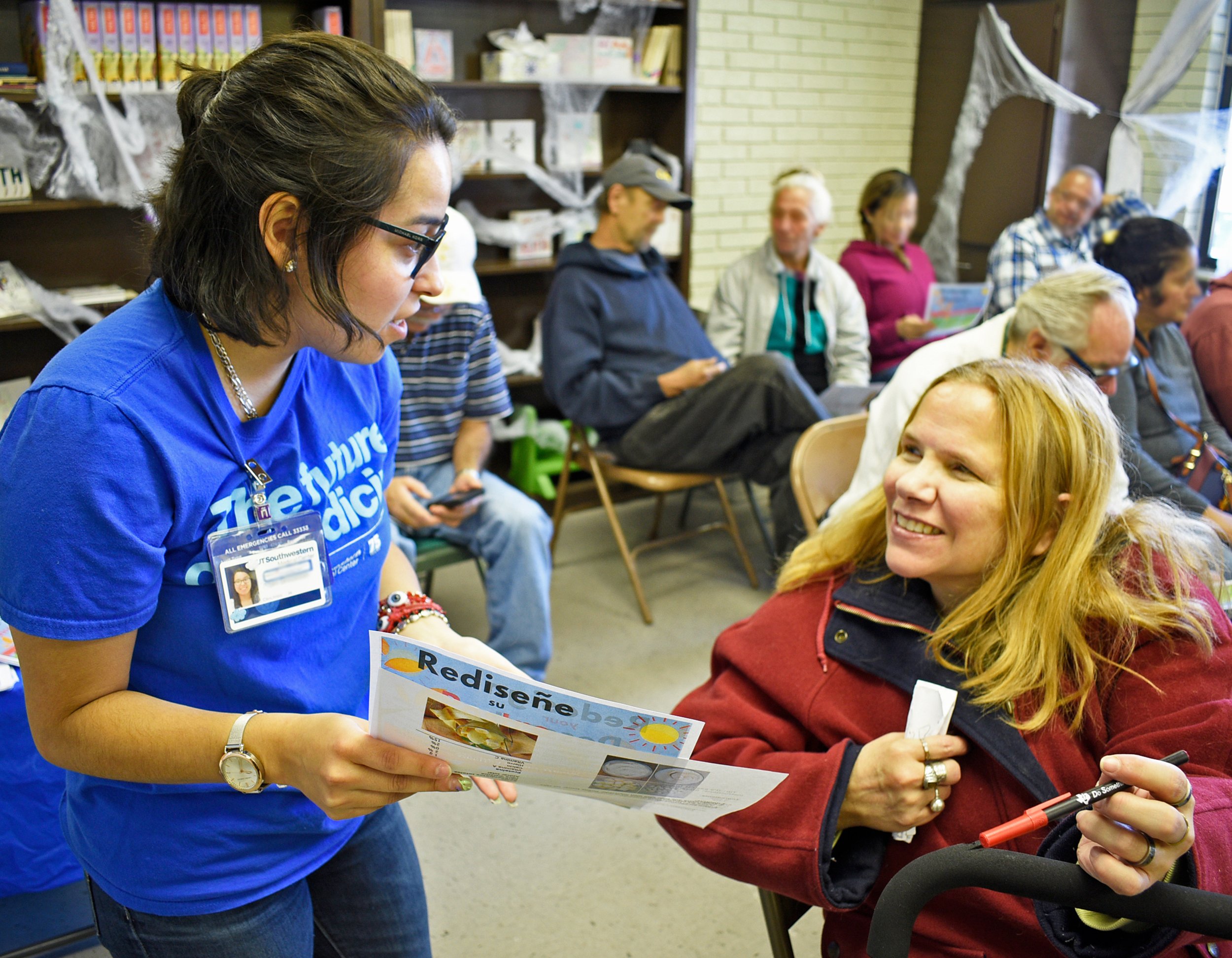
Collecting and Analyzing Shopper Data Drives our Innovation, Programs and Services.
Food Equity Research
At Crossroads, we believe in continually improving our programs and services to better serve our shoppers. Our research initiatives drive these program improvements and give us a better understanding of the broader picture of food insecurity.
Crossroads’ research initiatives have enabled us to pioneer the fight against food insecurity and garnered interest from organizations across the country.
Crossroads strives to evaluate and measure its effectiveness by collecting data from our clients. We collect information from our clients when they visit our Community Market. Shoppers answer questions about demographic, economic, health, mental and emotional well-being, and program participation. We collect these data longitudinally, asking shoppers the similar questions at multiple visits.
Why do we ask for information from our shoppers?
Collecting information from our clients allows us to understand their circumstances and unmet needs. Over time, we can understand our community's changing needs. Shoppers are not required to answer all questions, but we encourage them to do so.
How is data collected?
The data are collected using a customized repository specific to our food distribution model. Our partnership with Salesforce and the technology sector has increased our capacity for innovation and efficiency. For example, Salesforce allows our staff to create dashboards to track our efficiency and effectiveness. For example, these dashboards let us know how quickly shoppers progress through real-time intake, recertification, food selection, and shopping. As a result, we can alter the choice architecture surrounding food selections as soon as we collect and analyze data. This allows us to sort foods so that shoppers see the most nutritious foods first.
What do we do with all this information?
Crossroads staff uses the data to advocate for additional resources. For example, we use data in our funding applications for grants to philanthropic organizations. By demonstrating how many of our shoppers face very low food security, we are poised to advocate for additional food or financial assistance programs. As another example, by demonstrating many of our clients were diagnosed with diabetes and hypertension, we can make a stronger case to bring new health promotion and culinary medicine programs into our Community Market.
Crossroads staff also use the data to evaluate our services' effectiveness and inform future program improvements. For example, our data demonstrated that clients who visit Crossroads more regularly report better food security and improved social support. These data demonstrate our effectiveness, setting us apart from many food pantries that cannot determine whether food assistance improves the lives of individual clients. The data provide the foundation for future program improvements. In the future, as we improve our services, we will be able to evaluate what works and what doesn’t. We will continue innovating and adapting our services to ensure the greatest positive impact on our community.
Crossroads also partners with academic institutions to better understand the broader impact of food insecurity and food assistance on the well-being of low-income populations. Our unique data has garnered interest from researchers in China and the United Kingdom. We hope to find innovative solutions to our community's systemic problems by collaborating with faculty and students to conduct meaningful research projects that improve food access and equity.
Would your organization like to learn how to collect and use client data? Are you a researcher interested in using our data to answer important questions?
Please get in touch with our Market Operations Manager at info@ccsdallas.org.
RESEARCH PARTNERSHIPS
The research conducted by our partners not only aims to improve the lives of those we serve but also offers them a voice in matters that directly affect their lives and the well-being of their families.
Jaclyn Albin, MD, CCMS, DipABLM, Associate Professor of Internal Medicine, Pediatrics, and Public Health, UT Southwestern School of Medicine
Kelseanna Hollis-Hansen, Ph.D, Research Assistant Professor
Friedman School of Nutrition Science & Policy, Tufts University
Milette Siler, RD, LD, CCMS, Culinary Medicine dietetic instructor for UT Southwestern's medical school
Sandi Pruitt, Ph.D, Associate Director of Community Outreach, Engagement, and Equity, Harold C. Simmons Comprehensive Cancer Center, UT Southwestern Medical Center
Tammy Leonard, Ph.D, Professor School of Public Health, UT Southwestern Medical Center
